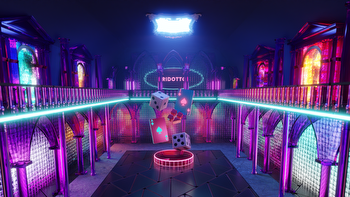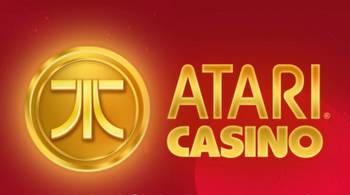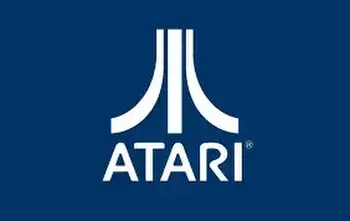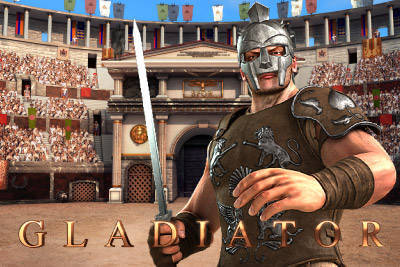The Evolution of Casinos in the Age of Decentralized Internet

Games of chance have been around for thousands of years, even from before there were written records of history. They have existed in all organised societies known to humankind. From astragali to fighting animals to dominoes to playing cards to slot machines; wagering money on games of chance has come a long way.
Casinos are a more recent phenomena. They offer these games under a single roof, often combined with other facilities like food, beverages, lodging, entertainment, etc. The earliest casinos are known to have existed as far back as 1000 BC in China. The first well known casino was set up in 1638. It was called Il Ridotto and was a part of Palazzo Dandolo (Hotel Danieli) in Venice. Players indulged in games of biribi (ancient roulette) and basetta (card game from yesteryears) while mingling with Venice’s finest. After 136 years of operations, The Ridotto closed its doors to the public.
Il Ridotto by Pietro Longhi – Patrons can be seen playing basetta and being served drinks in the background
The Ridotto may be considered as a Generation 0 casino – the first iteration of an organised gaming house with amenities. Over the years, casinos have grown into a market worth many hundreds of billions of dollars, with entire cities like Las Vegas and Macau centred around these services. The total size and variety of the market is mind boggling. For example, Japan’s tiny pachinko parlours are estimated to rake in more revenue than all the casinos of Las Vegas, Macau and Singapore combined. Physical casinos are slowly giving way to digital ones. And now even these online casinos are evolving to make way for decentralised gaming houses.
Generation 1
Any mention of the word ‘casino’ and the first image which comes to the mind of most people is an unpretentious white board emblemed with the letters ‘Las Vegas’ and decked with neon lights. A recurring feature in Hollywood heist movies, modern day (or Generation 1) casinos are designed in an intricate manner that encourages patrons to play more. More often than not, the names ‘Bellagio’ and ‘Caesars Palace’ would be familiar to travel enthusiasts who haven’t spent even a dime on games of chance!
The iconic Las Vegas strip
It would be safe to say that these casinos have become symbols of opulence and grandeur. Cities like Macau, Las Vegas and Monte Carlo (Monaco) have developed tourism industries centred around their casinos. Almost all major cosmopolitan tourist destinations, such as London, Paris, Singapore and Melbourne, can boast of casinos where tourists can engage in that one wild night of revelry.
It’s no wonder that the global casino industry is a multi-billion dollar affair today. In fact, the global gambling market was valued at USD 465.8 billion in 2020, and is expected to reach USD 674.7 billion in 2025 at a CAGR of 7%. A significant portion of this valuation comes from the real-world brick-and-mortar casinos.
The COVID-19 outbreak, however, has acted as a massive restraint on this market in 2020. With governments imposing lockdowns, restricting domestic and international travel, and enforcing strict curbs on social gatherings, the day-to-day functioning of casinos suffered. People have been forced to move to online means, which could be safely enjoyed from the confines of their homes. This change in trend has seen a surge in growth of the online gambling industry.
Generation 2
The first online casino software was developed by Microgaming as far back as 1994. It took another year for casino management tools and player tracking systems to be developed. Finally, in 1996, CryptoLogic developed a secure online financial transaction system and launched ‘InterCasino’, the first online application which offered both casino games and an integrated online payment system.
Popular casino games such as poker, roulette and blackjack are a staple feature of the online (or Generation 2) casinos in existence today. These casinos can be classified under 2 broad categories – ‘virtual’ and ‘live dealer’.
In virtual casinos, the outcome of any move is determined through a pseudo-random number generator (PRNG) software, which ensures that the result is totally random and unpredictable, to mimic the real-world casino experience. On the other hand, live dealer casinos use real-time results to determine the outcomes of the player moves, by streaming the games in real-time from a land-based casino or a studio.
A snapshot of game offerings on InterCasino today (out of a total of 2,077 options)
With the proliferation of high speed internet and increasing affordability of smartphones over the last decade, online casino games have seen a sharp increase in use and popularity. As per reports, the global online gambling market reached a valuation of USD 66.7 billion in 2020, and is expected to exhibit strong growth over the next decade.
Recent trends suggest that Generation 1 casinos are facing a stiff competition from their online counterparts. The amount of money and time spent in travelling to the casino before the person can play an actual game is exorbitant in most cases. Consumers have been saving on the transport and other associated costs, and instead using this money for online gaming activities.
While nothing can match up to the ambience of a real brick-and-mortar casino, the affordability and ease-of-access of mobile (Generation 2) casinos have been gradually tilting the scales in their favour. Moreover, with the COVID-19 outbreak, online apps have been re-shaping this age-old industry.
Generation 3
The roaring success of Web 2.0 was a major driving force behind the success of Generation 2 casinos. Now, the advent of the decentralized internet or Web 3.0 has fostered the rise of the 3rd generation of casinos, popularly known as ‘crypto casinos’.
Provability of randomness can often be cross-checked Eg. computation steps for a card game on Bitstarz ()
In simple terms, crypto casinos refer to online casinos which accept crypto coins and tokens as payment, and also offer the same in winnings. Users can store their funds in the platform’s crypto wallets to be spent in the games. Winnings are also paid out into these wallets, from which they can be withdrawn to the user’s own private wallet.
While this might seem to be a simple upgrade from the Generation 2 casinos, there’s more to crypto casinos than meets the eye here. To put it in a single line, crypto casinos harvest the power of blockchain technology to provide censor-resistant, secure, and private transactions to users.
This allows the players to bypass centralized actors and intermediaries who could be motivated to restrict players for various reasons – personal, political or otherwise. It also spares them from the time lags, fees and hassles of traditional payment systems. While banks can arbitrarily influence transfer of funds, in the case of crypto casinos, fund transfer from one wallet to another can happen without fail since public blockchains are resistant to coercion from individuals.
Furthermore, crypto casinos do not require users to divulge sensitive private information like KYC documents, utility bills, or banking information. Users remain completely protected from any potential identity theft that often plagues more conventional online gambling models. Data leaks from centralized repositories is far too common now and exposes users to social engineering and other phishing attacks.
In the true spirit of the decentralized internet, crypto casinos are designed to guarantee security and privacy to users. Platforms such as EarnBet, BitStarz and 7Bit Casino have been attracting new subscribers every day. A stable internet connection and access to crypto funds is all that is needed to enjoy a round of roulette in one of these.
Generation 4
The advent of COVID-19, combined with a sharp rise in popularity of cryptocurrencies and gradual adoption of decentralized internet technology stacks, has set the stage for trustless casinos. The house, the dealer and the player can all interact remotely now without fear of collusion between counter parties. We are still in early stages of Generation 4 casinos and as of now the only project that has successfully deployed a decentralized architecture in games of chance is Decentral Games, the first ever metaverse casino.
An ongoing game of blackjack in the Tominoya casino of Decentral Games ()
A Gen 4 casino is characterized by decentralized governance for managing the casino through DAOs (Decentralized Autonomous Organisations), non-custodial ownership of funds through Web3 wallet logins (for example Metamask), blockchain-based transactions through cryptocurrencies and an immersive experience through navigable metaverses. Web3 wallet logins protect user identities from data theft which is possible in Gen 1, 2 and 3 casinos since they have singular points of failure with respect to their database management systems.
Decentral Games (DG) has all of these and more. Backed by investors like Digital Currency Group (DCG), AU21, Bitscale and Cluster, Decentral Games is governed by a DAO (with USD 9 million in AUM currently). The DAO decides on policies, development roadmaps etc. through voting and proposals by $DG stakers. $DG is the native cryptocurrency of Decentral Games. Holders of $DG can stake the token in a governance contract to take part in voting and proposals. $DG is an ERC20 token that players can earn through gameplay (apart from earning through governance staking, referrals, farming on Uniswap and Quickswap).
Decentral Games offers the VR (Virtual Reality) experience of a brick-and-mortar casino with multiple casinos spread across a metaverse. Players can strap on their VR glasses and walk through DG’s premises to see games in action and play those that catch their fancy. Another part of the immersive experience includes collectible wearables for online avatars that have their own utility (mining boost). The casinos can be used for live events as well – NFT gallery showcases, live music parties etc.
Apart from casino games, DG also hosts events - auctions, dance parties, announcements ()
Transactions in Decentral Games are settled on the Polygon/MATIC sidechain of Ethereum. Hence, they are near instantaneous and dirt cheap. For now, players don’t need to pay gas since the casino covers it for them. DG also runs the third largest Polygon node along with 1 (of 12) nodes of Decentraland – the metaverse in which Decentral Games operates currently. It is interesting to note that Decentral Games is platform agnostic and can practically be deployed in any metaverse.
As Decentral Games gets a bigger foothold, more Generation 4 casinos will pop up over time as the market matures. One indication of this eventuality can be seen in the big brand partnerships that DG has secured already – with Binance (for a Binance Smart Chain-based casino), with Atari (for an Atari-branded casino), with Amnesia Ibiza Club (for virtual dancefloors) and many more. User and transaction metrics have also exploded – transaction volume of USD 100M+ in six months since launch, an all-time high DAU (Daily Active Users) count of 3,806 in the Decentraland metaverse during the Atari casino launch and so on. Suffice to say, there’s more room for growth.
As one of the oldest industries to now worth hundreds of billions of dollars, games of chance are here to stay. Spanning from The Ridotto to Decentral Games, establishments that house these activities and make them accessible to users worldwide will continue to grow as well. With the coming of the decentralized internet era, we will see the decentralized casinos grow further into mainstream. So watch this space and stay tuned.
PSA: Please make sure that you access these services from a jurisdiction that allows casinos and partaking in games of chance. Many countries have rules in place that allow only certain activities or restrict them completely. Please be mindful of that.
Disclosure: The author does not have any vested interest in the projects mentioned above. He owns small amounts of the related cryptocurrencies for testing out various apps and DApps.







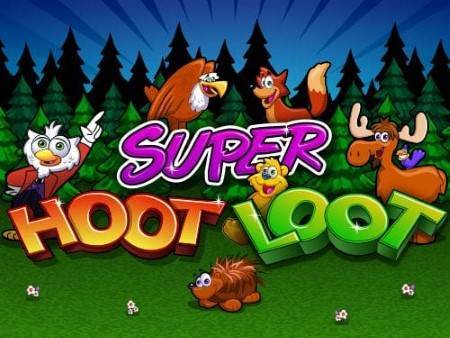

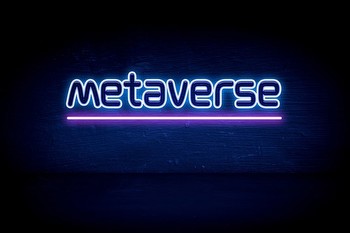





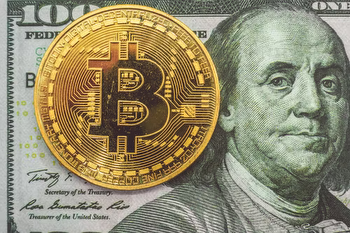
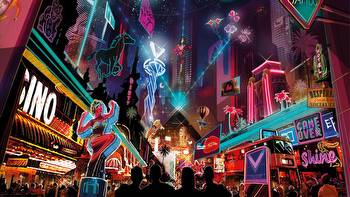

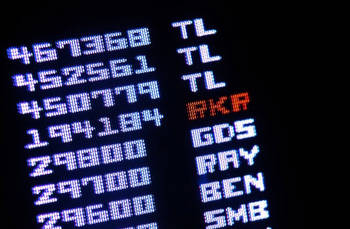

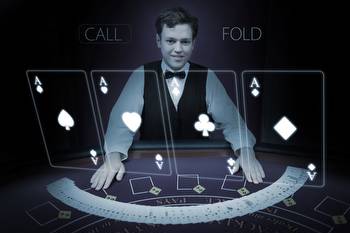



![Gambling on ‘the metaverse’ [Part 1]](/img/di/gambling-on-the-metaverse-part-1-3.png)
